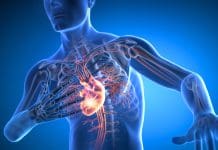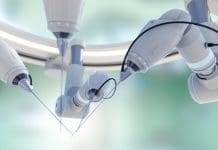The NHS is trialling an AI-powered “one-day diagnostics” pathway for prostate cancer across up to 15 hospitals, aiming to slash diagnostic waiting times by weeks
The NHS has begun a pioneering trial using artificial intelligence (AI) to transform how prostate cancer is diagnosed. The new approach, now being tested in hospitals across England, could dramatically cut waiting times and help detect cancer earlier, potentially changing how thousands of men receive care.
Diagnosing prostate cancer rapidly and efficiently
Up to 15 hospitals are set to take part in the pilot AI trial, with Leeds Teaching Hospitals NHS Trust initiating the scheme. The new ‘rapid diagnosis’ pathway will offer all investigations within one day, with around 100 men expected to benefit.
If a scan is found to have a high-risk cancer by the AI software, it will be sent immediately to a radiologist for a priority review, and the patient will be booked in for a biopsy the same day.
England’s top cancer doctor said the quicker diagnosis pathway could help save men “weeks of worry and uncertainty” and comes as part of central NHS and government plans to diagnose cancer more quickly.
If the AI trial is successful, the pathway will be rolled out widely across the NHS, enabling thousands of people to be diagnosed and treated sooner.
Currently, patients should receive an MRI and biopsy within seven days of an urgent GP referral for suspected prostate cancer. Still, depending on radiologists’ capacity, this can take longer in some areas.
The future is an AI-powered one-day diagnostics
The AI tool, named PI, was developed by Lucinda Medical and has shown it can spot 95% of cancers. It will be used in 10,000 scans to assist radiologists in reporting cancers and in decision-making for next steps.
Professor Peter Johnson, NHS National Clinical Director for Cancer, said: “We’re really excited by the potential of artificial intelligence to speed up cancer diagnosis, and we hope this trial of an AI-powered ‘one-day diagnostics’ could be a game changer and help save men weeks of worry and uncertainty.
“As with all cancers, speed is crucial – the quicker the diagnosis, the sooner treatment can begin and help give the best chance of treatment being successful for patients and their families.
“Prostate cancer continues to have a devastating impact on tens of thousands of men and their loved ones every year in this country. We are determined to see more patients diagnosed or given the all-clear quicker, and combining the latest technology with this new testing pathway will give clinicians the tools they need to provide patients with peace of mind or pin down a cancer diagnosis as soon as possible”.
Dr Oliver Hulson, Consultant Radiologist at Leeds Teaching Hospitals NHS Trust and leading the trial in Leeds, said: “As clinicians, we are always looking at ways to improve the diagnosis and treatment of cancer to ensure our patients get the expert care they need as quickly as possible.
“This latest innovation pilot aims to take that a step further. The AI-assisted MRI screening introduces a rapid diagnostic approach, so we can fast-track patients who may need further investigations, including MRI scans and a biopsy, to have them all in 1 day at the Leeds Cancer Centre. We hope this can pave the way to mean faster treatment and better outcomes for our patients and their families”.
Health Secretary Wes Streeting said: “Prostate cancer is a devastating disease impacting thousands of men every year – and what makes this already incredibly challenging situation worse for these men is long waits for test results, diagnosis, and treatment – it’s needlessly distressing for them and their families.
“By harnessing the power of technology, we are revolutionising our NHS and tackling this, with AI able to deliver same-day prostate diagnoses – delivering better outcomes for patients and fast support for doctors.
“This is modernising the NHS, making it fit for the future and boosting productivity and efficiency – ending needlessly long and apprehensive waits for test results, enabling patients to begin treatment as fast as possible and saving lives”.











